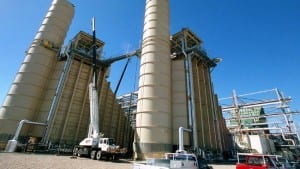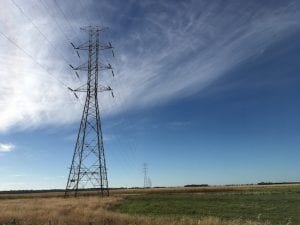Two energy retailers who between them shed tens of thousands of customers, and then sold out of the market as wholesale spot prices started to soar, are being investigated by regulators seeking to determine if their actions failed to comply with their obligations to serve and protect consumers.
The Australian Energy Regulator on Friday confirmed to RenewEconomy that it was, alongside the Australian Competition and Consumer Commission, looking into the actions of Queensland-based retailers Locality Planning Energy (LPE) and ReAmped Energy.
LPE and ReAmped were among the first of a number of small retailers to start actively turning away customers, saying turmoil in Australia’s National Electricity Market – largely driven by soaring coal and gas generation costs – had left them them unable to compete.
LPE wrote to its 21,000 retail customers in Queensland in mid-May advising them to change to another company that could afford to keep its retail offer in more affordable territory amid the market chaos.
“Within the next 24 hours, we encourage you to seek an alternative supplier,” LPE chief executive Damien Glanville said in a letter to customers published on the company’s website.
“This was not an easy decision to make but as always, our customers are our priority. As a local business, we understand the financial pressures families are currently facing, and we did not want to have to materially increase our prices which would have added to this stress.”
But as RenewEconomy reported last month, LPE raised eyebrows in the industry when, just weeks after instructing customers to leave, it announced on the ASX a $30 million boost to its kitty, including $22 million realised from unwinding wholesale electricity hedge positions.
Reports have since emerged that ReAmped Energy, which had similarly told its 70,000-odd customers they were “better off with another electricity retailer,” did much the same with its own hedging position, but for what industry insiders suggest was a much higher value.
The question for regulators is how such actions affected the retailers’ tens of thousands of customers, who should expect a level of stability and transparency from companies licensed to provide an essential service.
According to market observers, the value of LPE’s hedge suggested customers would have been priced well below the Direct Market Offer, begging the question of why the big hurry – including threats of much higher bills – to move them along.
As LPE said in the ASX statement at the time:
“With the rapid reduction in load from on-market customers, LPE has closed its wholesale electricity hedge book and increased electricity charges to legacy clients yet to transfer away.
“The hedge book value has closed at $22m and represents ‘in-the-money’ value of LPE’s forward electricity purchases. This will result in fixed known cash in-flows into LPE monthly over the remaining term of the hedge book, with the majority to be settled by 30 June 2023.”
At the time of the statement the company said more than 70% of its on-market customers had switched to alternate providers, but that meant the remainder – roughly 7,000 customers – were left to pay hugely inflated charges until they, too, made a switch.
On Friday, AER chair Clare Savage confirmed the regulator and the ACCC were working together to investigate.
“This is conduct of concern and something we are looking at together with the ACCC,” Savage said in a statement shared with RenewEconomy.
The AER had already flagged increased scrutiny on the actions of all market players on July 01, in a op-ed by Savage, published here.
“As the energy system transitions to net zero, consumer trust and confidence are more important than ever. But trust is earned, not a given,” Savage wrote.
“People have a right to trust they can turn on the lights or the heater when they need to at an affordable price. Equally, people expect that all energy businesses are playing by the rules to provide such an important service.
“Compliance with energy laws …ensures that important consumer protections are delivered, and rights are respected.
“It gives consumers and energy market participants confidence that the energy markets are working effectively and in their long-term interests. It allows them to participate in market opportunities as fully as possible and provides protection when they cannot do so.”
Adrian Merrick, the founder and CEO of renewable energy focused small retailer Energy Locals, said on Friday that he wasn’t surprised that some retailers’ actions were being investigated.
“At least one regulator has already stated that they won’t permit retailers to remain licensed in certain situations,” he told RenewEconomy.
But Merrick said investigations might require some highly targeted information requests, particularly from the ACCC, to truly get to the bottom of the issue. And he also stressed that regulators should be asking questions about the behaviour of other market players, too.
“I would also like to see regulators issue information notices to generators who en masse started claiming that they were buying coal and gas at spot prices after the opportunity for compensation payments emerged. To think you’d run a power station and not hedge your fuel costs is unthinkable,” he said.










